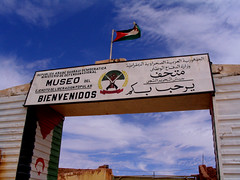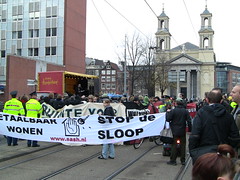 More than a year since the great investigative reporter Anna Lenzer published her article on the story behind Fiji water (also appearing as a guest on this podcast), the company announced this week it is closing its operation in Fiji. After a long relationship with the ruling military junta, the company announced on their blog on Nov 29:
More than a year since the great investigative reporter Anna Lenzer published her article on the story behind Fiji water (also appearing as a guest on this podcast), the company announced this week it is closing its operation in Fiji. After a long relationship with the ruling military junta, the company announced on their blog on Nov 29:
In Friday’s budget (11.26.10), the Fiji government announced that it will impose a 15-cent per liter tax on bottled water at locations where more than 3.5M liters per month are extracted. FIJI Water, which currently pays 1/3 of a cent per liter, is the only bottled water producer in Fiji affected by the increased tax; bottlers who extract less than this monthly limit will continue to pay about 1/10 of a cent, or 10,000% less tax than FIJI Water.
This new tax is untenable and, as a consequence, FIJI Water is left with no choice but to close our facility in Fiji, effective Monday, Nov. 29, 2010. We are saddened that we have been forced to make a business decision that will result in hardship to hundreds of Fijians who will now be without work.
They went on to refer to the government of Fiji and the terrible state the country is in:
The country is increasingly unstable, and is becoming a very risky place in which to invest.
24 Hours later the company makes a new announcement explaining that after discussions with the government, its factory will reopen:
Through our discussions, we have also agreed to comply with Fiji’s new water tax law……Moving forward, FIJI Water is committed to working with the Fijian government, and remains dedicated to helping the country’s economy and its people.
An odd turn of events, first that they decide yesterday, after more than a year of dealing with an undemocratic government with a questionable human rights record, that they had finally reached their breaking point. Then that after one day of discussions, the government is not as bad as they explained the day before, and that all is fine. It actually impressive they didn’t delete the post from the 29th altogether, pretending it never happened. Perhaps the heavy amount of proof scattered around the internet would have been difficult to take back.
There is much to ask of both the Fiji government, the water company, and drinkers of Fiji water to understand what is going on here. Unfortunately in what has long been an unsustainable operation, doing more harm then self-proclaimed good on this planet, it looks like business as usual. Not that Fiji water drinkers ever really asked anything about the bottle they continue to hold in their hands.
More on this and hopefully some answers to these questions: soon.
 It has been some time since I mentioned the quiet yet highly dangerous global agreement on copyright that is being drafted and adopted with little public consultation, knowledge or understanding. Where once I had hoped out of all the global players sitting behind closed doors, that the European Union would put a stop to policies and principles that would help to stifle anyone who creates or shares content online. This week we found out that the EU is in fact,
It has been some time since I mentioned the quiet yet highly dangerous global agreement on copyright that is being drafted and adopted with little public consultation, knowledge or understanding. Where once I had hoped out of all the global players sitting behind closed doors, that the European Union would put a stop to policies and principles that would help to stifle anyone who creates or shares content online. This week we found out that the EU is in fact,  It was a political campaign and a presidential election upon which not only the future of a nation rested but also the inspiration and example for much of the continent. Packed with emotion, with great highs and great lows, throughout the Ghanaian presidential
It was a political campaign and a presidential election upon which not only the future of a nation rested but also the inspiration and example for much of the continent. Packed with emotion, with great highs and great lows, throughout the Ghanaian presidential  In the quest to learn more about Western Sahara and how people in that region are living, I have begun reading through human rights reports from refugee camps. Specifically the camps in
In the quest to learn more about Western Sahara and how people in that region are living, I have begun reading through human rights reports from refugee camps. Specifically the camps in 
 The squatting community in Amsterdam is under siege, with the new law declaring squatting illegal, many who have lived in their homes for a decade or more are now considered criminals and subject to forceful eviction. ; But the community and its supporters have not given up hope and refuse to be made homeless by the authorities.
The squatting community in Amsterdam is under siege, with the new law declaring squatting illegal, many who have lived in their homes for a decade or more are now considered criminals and subject to forceful eviction. ; But the community and its supporters have not given up hope and refuse to be made homeless by the authorities.